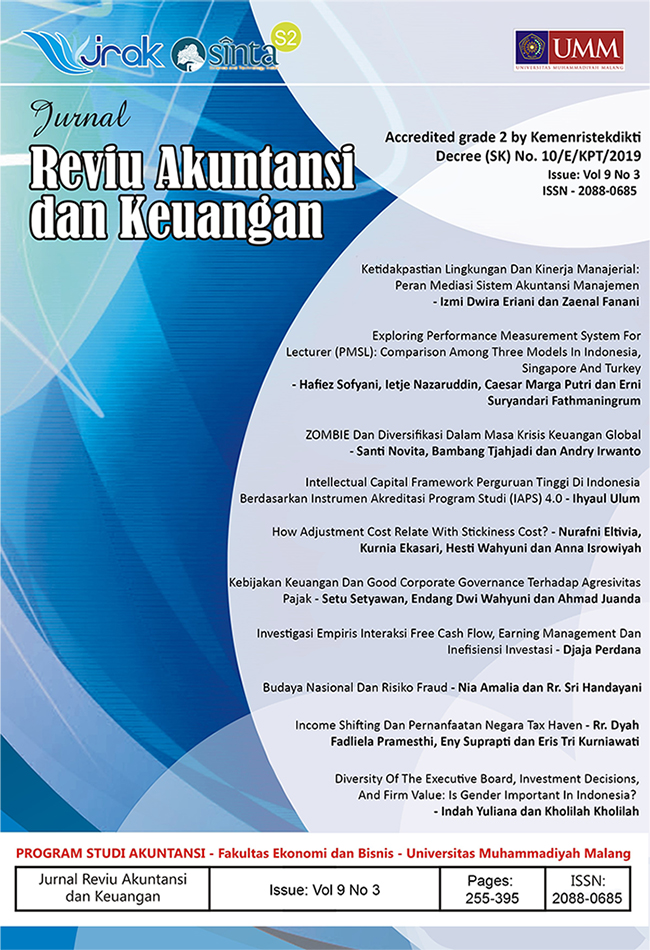BUDAYA NASIONAL DAN RISIKO FRAUD
DOI:
https://doi.org/10.22219/jrak.v9i3.9638Keywords:
Fraud Risk, Individualism, Indulgence, Long-term Orientation, Masculinity, Power Distance, Uncertainty AvoidanceAbstract
This study aims to obtain empirical evidence about the influence of national culture on fraud risk. The lack of literature that discusses fraud risk makes researchers interested in researching the relevance of national culture to understanding the risk of fraud so that it can help reduce fraud. Six dimensions of Hofstede's national culture were used in this study. As well, the Corruption Perception Index is proxied to measure fraud risk.The population in this study are countries in the world registered with the Corruption Perceptions Index 2018 by the Transparency International organization. The sample selection used a purposive sampling method and selected 81 sample countries. Multiple linear regression analysis was used as an analytical tool in this study.The results of the analysis of this study reveal that the dimension of power distance has a positive and significant effect on the risk of fraud. The dimensions of individualism, long-term orientation and indulgence negatively and significantly affect the risk of fraud. On the other hand the dimensions of uncertainty avoidance and masculinity have a positive but not significant effect on risk to the risk of fraud.
Downloads
Downloads
Published
Issue
Section
License

Jurnal Reviu Akuntansi dan Keuangan is licensed under a Creative Commons Attribution-NonCommercial-ShareAlike 4.0 International License.
Authors who publish with this journal agree to the following terms:
- Authors retain copyright and grant the journal right of first publication with the work simultaneously licensed under a Creative Commons Attribution-NonCommercial-ShareAlike 4.0 International License that allows others to share the work with an acknowledgement of the work's authorship and initial publication in this journal.
- Authors are able to enter into separate, additional contractual arrangements for the non-exclusive distribution of the journal's published version of the work (e.g., post it to an institutional repository or publish it in a book), with an acknowledgement of its initial publication in this journal.
- Authors are permitted and encouraged to post their work online (e.g., in institutional repositories or on their website) prior to and during the submission process, as it can lead to productive exchanges, as well as earlier and greater citation of published work (See The Effect of Open Access).










